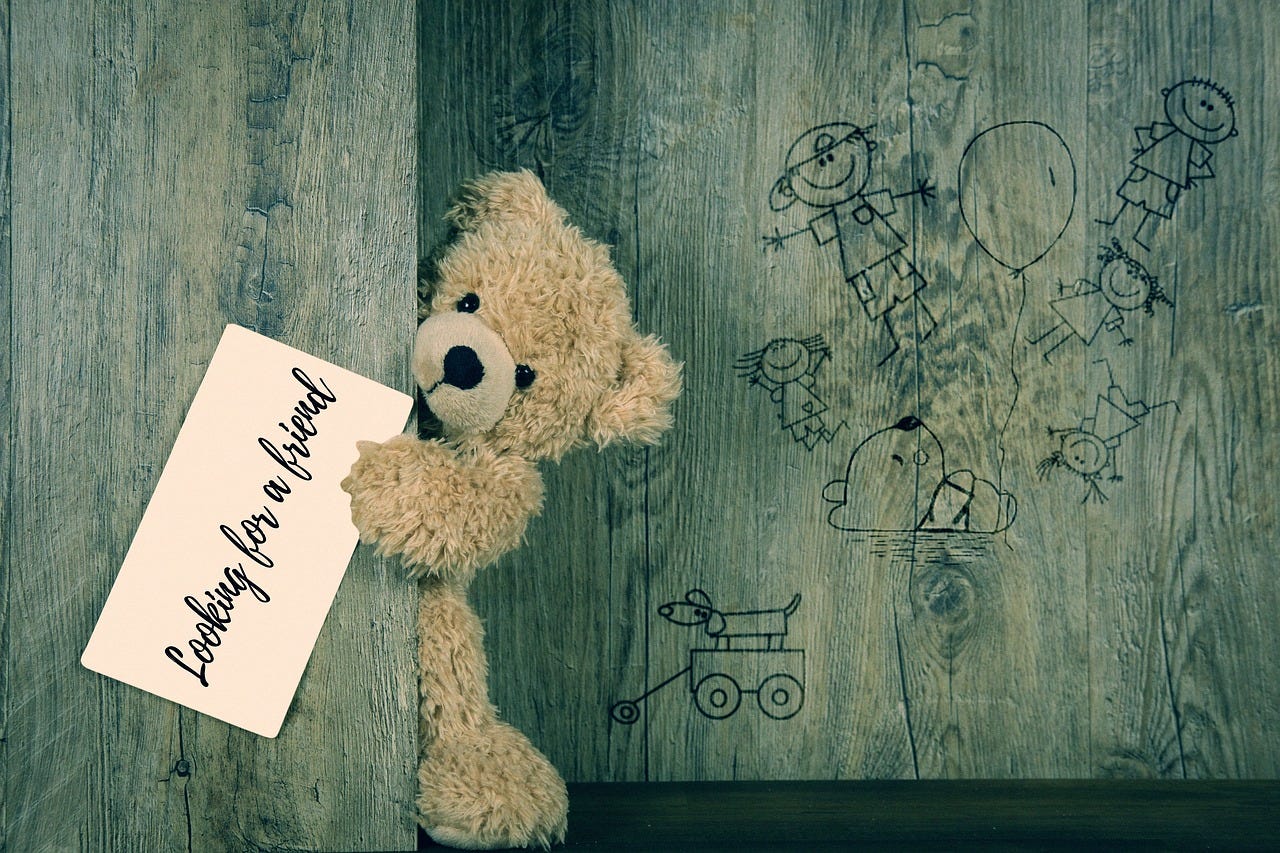I Think We're Alone Now
How local community organizing might address a global crisis of social isolation.

Happy new year! And welcome back to The Whale.
Not sure about you, but I always find the transition into this week a bit rough. In our home, we have these fairly busy few days of celebration and family meals and then cleaning up. Then just when I’m starting to finally feel relaxed, BOOM — back to work. Meetings, work planning, and oh yes, the emails…
Don’t get me wrong, I enjoy the holidays. Having time off to spend with my kids and to focus on hobbies and reading is always a nice thing. And despite the chaos, I also enjoy getting together with friends and family. It’s nice to see people, share a meal, and laugh together. Amidst all the cooking and cleaning and worrying and travelling, what makes this season great is just being with people.
It’s also what makes this season so hard for others. While some of us are enjoying the happiness of friends and family, others are experiencing the pain of loss and loneliness.
Last year, the U.S. Surgeon General issued an advisory on what he called “an epidemic of loneliness and isolation.” In it, he connects loneliness to a greater risk of cardiovascular disease, dementia, stroke, depression, anxiety, and premature death. He also noted that social isolation among older adults accounts for up to $6.7 billion in excess Medicare spending each year.
The World Health Organization similarly compared the mortality impact of social disconnection as being the same as smoking up to 15 cigarettes a day.
And closer to home, the Toronto Foundation put out a landmark Vital Signs Report at the end of last year in which they called Toronto one of the loneliest places in Canada, with 37% of the population expressing feelings of loneliness 3-4 days / week.1
There are a number of factors contributing to this rise in social isolation — including more people living alone, older adults making up a larger portion of the population, the way technology is replacing many of our day-to-day interactions, and, of course, the very design of our communities. All of these, and more, are converging into what has become a global crisis of loneliness and social isolation.
What’s important to understand about something this big is that, even though it can feel very personal, loneliness is a shared problem — and requires a shared solution. The trouble with our neoliberal political system is that it tends to approach most problems through the lens of personal responsibility, making them your problem to solve. However, big problems like this cannot be solved through personal responsibility; they require collective and system-wide repair.2 Incidentally, this is why I am drawn to multisolving. As the cracks in our system become more and more apparent, the urgency for action grows, and as we continue to learn more about the intersectional nature of problems, the need to invest in solutions that can address several problems at once becomes paramount. Elizabeth Sawin notes that multisolving involves starting with one big problem and then taking on other problems right at the start.3 This means that the problem of loneliness is something that can be picked up by environmental activists and other community organizers.
The great thing is that community organizing already has a solution baked into it. It’s in the name: community organizing — bringing people together. All it takes is a little intentionality, and you can turn your organizing spaces into places of social connection and care. This is actually something I think activists can learn from faith communities. To be clear, I don’t think every faith community is doing this well, but many of them do embed community care and creating places for connection into their work.4 Building an authentic and care giving community alongside the enactment of your mission is an essential skill that will ensure the longevity of involvement in your cause. As an aside, some of our loneliest community members also have the most time to give to your work.
See, multisolving.
This is something I have greatly appreciated about the Simcoe County Greenbelt Coalition. From the very first time I met them, their desire to embed care into their environmental work was apparent. A couple weeks ago, Julie wrote here about sustainable activism. In her wonderful piece, she asked some great questions that would really help integrate this sort of connection and care into organizing. This is the sort of thinking we all need to carry into 2024. Please read it if you haven’t yet.
I am someone who very much believes in the potential of people to come together and solve these big problems. What I love about this one is that people coming together is itself a solution to a very big problem. May 2024 be a year of seeing the care and connection of people around us as a core part of the community organizing that we do.
And if you live in Simcoe and you’re looking for a place to connect and do some good work, reach out to SCGC. I’m sure they can help connect you with one of their member groups.
Thanks for reading to the end,
Ben Bartosik is a marketing manager for Evergreen Canada, a national non-profit transforming public spaces in our cities to build a healthier future for people and our planet. He is also a guest writer for the Whale and an advocate for the work of SCGC.
Weekly News Digest - “The Blowhole”
Here are some emerging stories and events that we think are worth keeping our eye on.
An Open Letter to Substack. If you haven’t heard, Substack has been getting a bit of a attention — and not in a good way. Obviously, as users of this platform we are concerned about this and so we wanted to share this open letter of concern and essentially co-sign this and are waiting to hear Substack’s response.
Fighting Loneliness Through Community Design. As I mentioned in the main piece, one of the causes of loneliness is urban planning. Our communities have been designed against interaction and connection. Rethinking this will be crucial to seeing a change.
A tweet I saw that resonates this week.
“January is not the month for starting a new life, sorry. You’re thinking of April or September. January is a Sunday afternoon. It is for sleeping in, making cinnamon rolls, having sex and reading bad fiction books. Any work you get done this month is a bonus. You’re welcome.”
@HeidiPriebe1
Join the Pod
Like what we talk about and want to engage with our coalition more? Check us out on social media or drop us a line if you’d like to volunteer: info@simcoecountygreenbelt.ca
This is only slightly higher than the national average, which is 28%.
This, I hope, becomes a dominant framework for how we reflect on the pandemic.
Just over a year ago I wrote my first article for the Whale. It was about how to talk about global problems at holiday gatherings without becoming a complete party ruiner. In it I mentioned how people were increasingly tuning out to the growing list of catastrophes as an act of self-preservation and were instead choosing to narrow their focus to a single area of concern that directly connected to their lives. My own experiences for years seemed to resonate with this, as people would often respond to new challenges with something like, “that’s great that you care about this issue, but it’s not my issue.” It seemed they were content with a scattered and disconnected approach to global issues, in which everyone would just work on their own little individual problems themselves. Multisolving has emerged as a great alternative to this. Invite people into solutions that can address all of our problems.
In Bradford, (at least) one of the churches offered a Blue Christmas service; which is a space for people who are alone or grieving to enter into a space with others for more quiet and somber (and less emphasis on joy and celebration).







